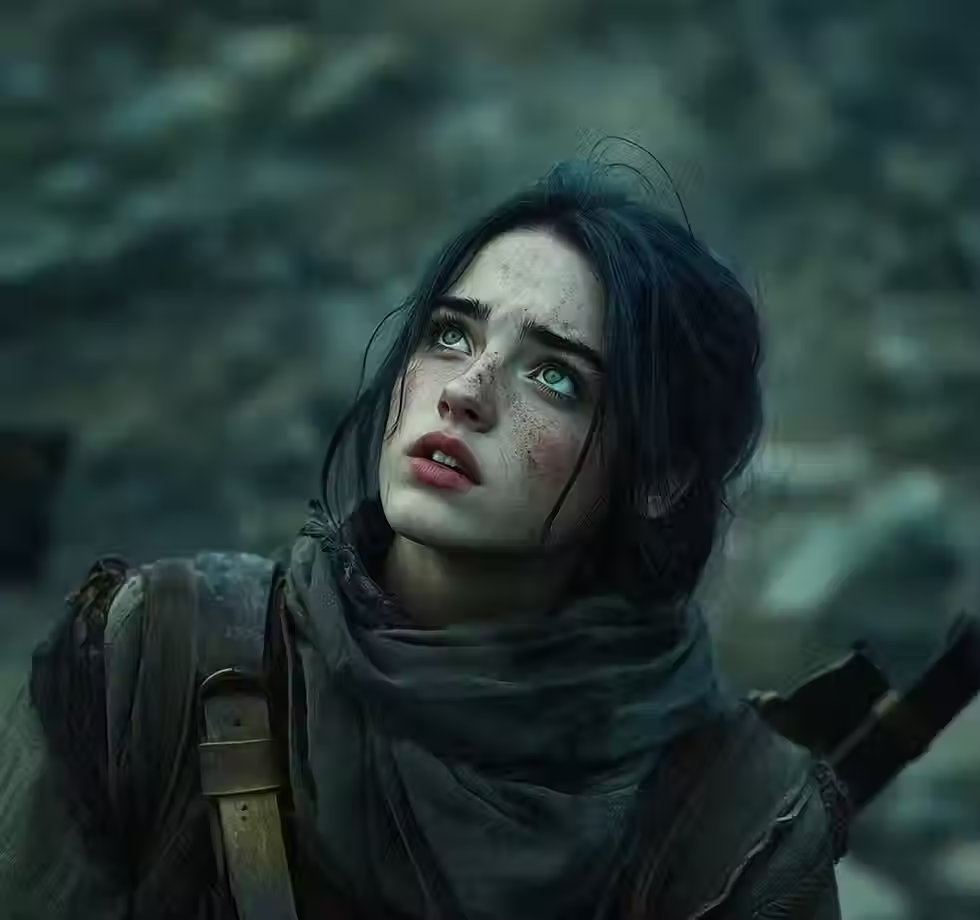Cinematic Production Design on an Independent Scale: A Chat with Mehdi Saqi
- Jun 17, 2025
- 3 min read
Updated: Jun 24, 2025

What did AI enable you to do in your film that would have been impossible—or unimaginable—without it?
Mehdi Saqi: AI allowed me to visualize, create and build an epic world that would typically require massive crews and VFX. It gave me the ability to create a cinematic production design on an independent scale, to bring my vision to life, that would have been impossible to execute in traditional methods on my level alone.
Did your vision for the film change once you started working with AI tools? If so, how?
Mehdi Saqi: Yes and no. I took the time to write the story, the characters, their arc and build the entire world in details on the page, without using any AI tool. Only when everything was written, I started translating the vision into visual assets. This was crucial for me as I did not want to be tempted by the unlimited possibilities of AI tools. I wanted the story to be my gatekeeper for every creative choice, so the vision had to be very clear to me before starting to work with AI.
But the creative freedom that AI enables allowed me to dig deeper into all the details, explore different approaches on ideas, creative choices and an ability to push world scale and cultural richness as far as needed.
The vision stayed the same, AI gave me more ways to express it.
How did AI shape the emotional tone or atmosphere of your film? Was that an intentional choice or a surprise outcome?
Mehdi Saqi: From the beginning, the intention was to tell an intimate story set within an epic vast world. This ancient civilization living on the back of a continent creature was the foundation of the story, but its heart has always been within Ayla’s personal journey. AI gave me the possibilty to translate this dual identity of the film in a deep and powerful way, sometimes exceeding my expectations in terms of how the tone and mood I wanted was captured.
Were there any limitations with current AI tools that you had to creatively work around?
Mehdi Saqi: Considering that I worked on it 8 months ago, many of the tools and features available now did not exist yet.
Starting with image creation, where I wanted to achieve the most cinematic look possible, so I needed to work with care to ensure that all details looked real and anchored.
Character consistency was also a tricky part because multiple character consistency did not exist, so it took more time to achieve it.
Lipsync technology also just came out in its first early stage, so facial precision and performance accuracy took also a great amount of work to achieve emotional and subtle performance.
However, those limitations only come to mind now, but at the time, AI already felt like an incredible toolkit, and I never felt creatively held back, it gave me all the freedom I needed to craft the story.
If you could re-do one part of your film with next-gen AI capabilities, what would you revisit—and why?
Mehdi Saqi: I guess I would take advantage of the advanced capabilities to give more depth and sharper details to showcase and explore the world of Nalvora, especially the richness of its civilization and urban life.
At the time, I used mostly wide shots and kept the camera far away to showcase the civilization, but now, capabilities allows me to go deeper and explore in more sharp details the culture of that civilization in a more immersive way.
What does winning the Meta Morph AI Film Award mean to you, especially at this moment in the evolution of storytelling technology?

Mehdi Saqi: It means something truly important, especially with such a prestigious jury. It sends the message that what unites us as creators, is the story. It is not about technology or a quest for performance or like some of the industry is saying about machines replacing humans. It is a celebration of a golden age of storytelling that is coming back, with revolutionary creative tools that now allows the world to hear and see meaningful stories from creatives minds who had been mute before. Winning this award feels like being privileged to be one amongst many to carry this message, and advocate for what matters most: the ability to tell stories and share them with the world.




Comments